The hospitality industry, known for its commitment to providing comfort and memorable experiences, is increasingly aware of its own impact on the planet.
With growing pressure from travelers, investors and regulators, sustainability in the hospitality industry is no longer a niche concept but a core business imperative.
Let’s dive into key hotel and hospitality industry sustainability statistics that highlight the current state, challenges and opportunities in sustainable hospitality.
Tourism Drives Increase in Emissions
The growing concern for environmental sustainability arrives at a crucial juncture. Despite increased awareness, many individuals may not fully realize how their everyday decisions — including travel — impact the planet.
Currently, tourism accounts for approximately 5% of global greenhouse gas emissions, a significant share that is projected to rise sharply.
Emissions from tourism are expected to grow by 130% by 2035 if current trends continue.
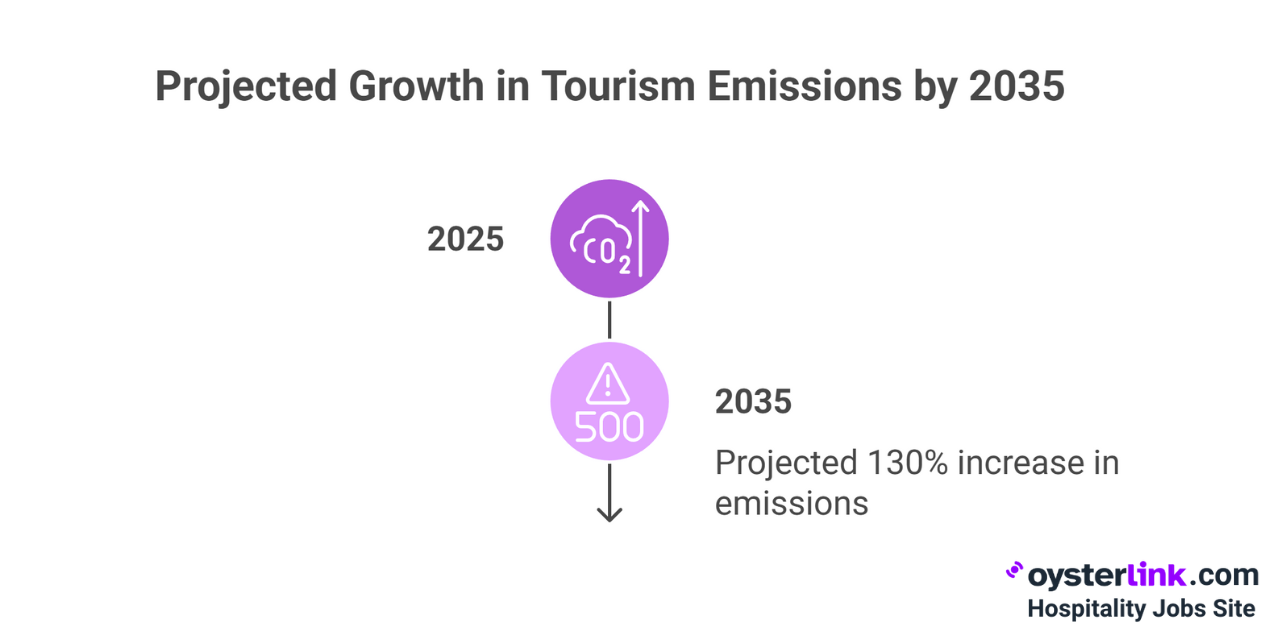
The Urgency of Sustainable Practices in Hospitality
Buildings have a significant impact on global carbon emissions, and this is especially true for hotels. Overall, the sector accounts for roughly 40% of greenhouse gases, highlighting its crucial role in addressing climate change.
Hotels, in particular, often have higher energy consumption than comparable structures, which further amplifies their environmental footprint.
Green Buildings Use Less Resources
The impact of adopting sustainable building practices is quantifiable and significant.
On average, green buildings consume 26% less energy, emit 33% less carbon dioxide, use 30% less indoor water and produce 50% to 75% less solid waste sent to landfills and incinerators.
Statistics Show Travelers Value Sustainability
Data from recent studies show a distinct trend to consider as the industry moves forward. Today's travelers aren't just looking for comfortable accommodations; they're actively seeking out establishments that align with their values and prioritize sustainability.
A significant 83% of travelers believe sustainable travel is essential. This shift in consumer preferences is prompting more hotels to adopt eco-friendly practices to meet and exceed guest expectations.
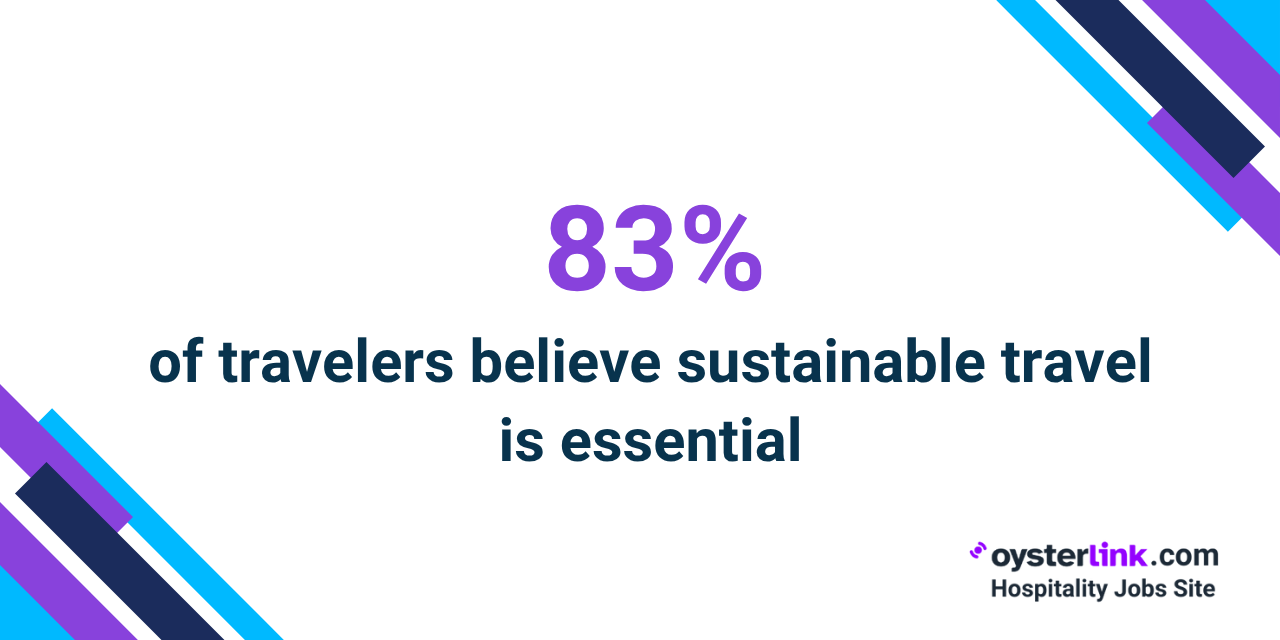
Sustainability Increases Revenue
Historically, concrete data supporting the revenue benefits of sustainability initiatives was limited, but this gap is now narrowing.
With targeted marketing and positive consumer perception, businesses are increasingly experiencing tangible financial gains.
For example, hotels that implement sustainable practices have reported an average 12% increase in overall revenue compared to their non-sustainable counterparts.
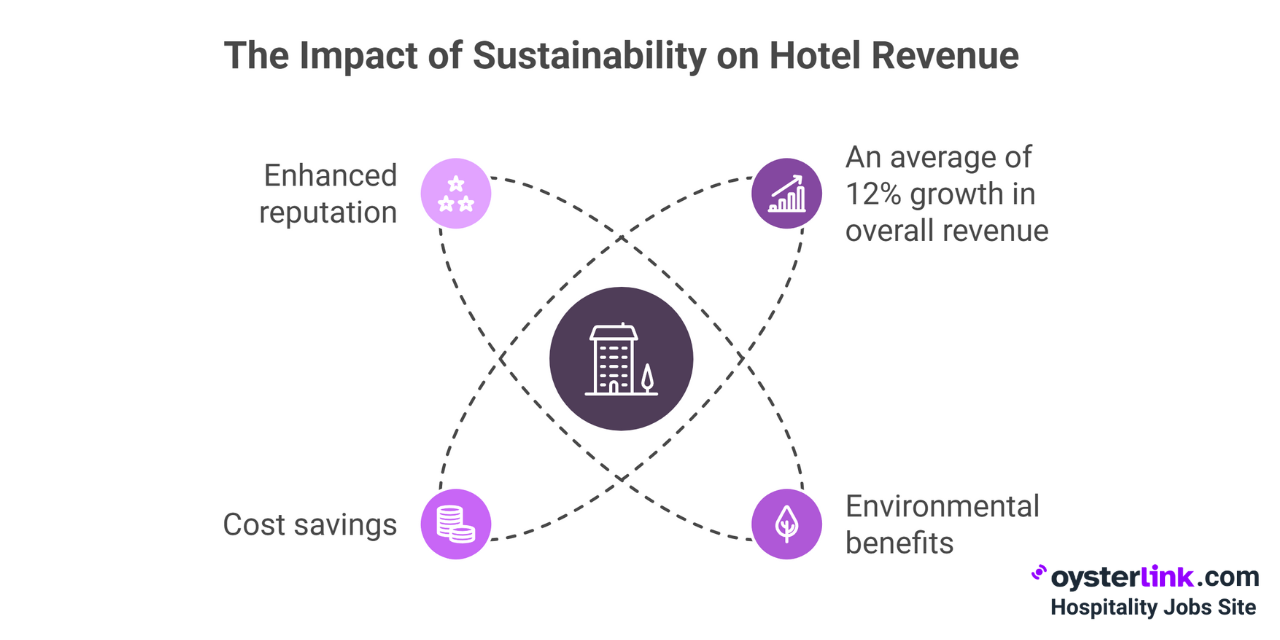
Utility Costs: A Focus on Energy and Efficiency for Carbon Footprints
Utility expenses constitute a significant portion of operational costs within the hospitality industry and are a major contributor to its environmental impact.
Data indicates that energy consumption is among the largest factors influencing the industry's carbon footprint, with estimates suggesting that 60–70% of a hotel's utility costs are due to electricity use.

Understanding and Addressing Food Waste in Hospitality
Food typically represents the largest expenditure for restaurants and hospitality establishments, making waste reduction a priority for both cost savings and sustainability.
It is estimated that approximately one-third of all food produced globally is wasted annually, with a substantial portion stemming from the hospitality sector.
This chart illustrates the distribution of food waste across different sectors within the hospitality industry:
Sustainability Certifications Are on the Rise: A Commitment to Environmental Standards
Although discussions around environmental conservation and sustainability have been widespread, recent data demonstrates a tangible shift among industry leaders and businesses.
In 2023, there was a notable 20% increase in the number of hotels obtaining sustainability certifications, such as Bioscore, Green Key, EarthCheck and LEED.
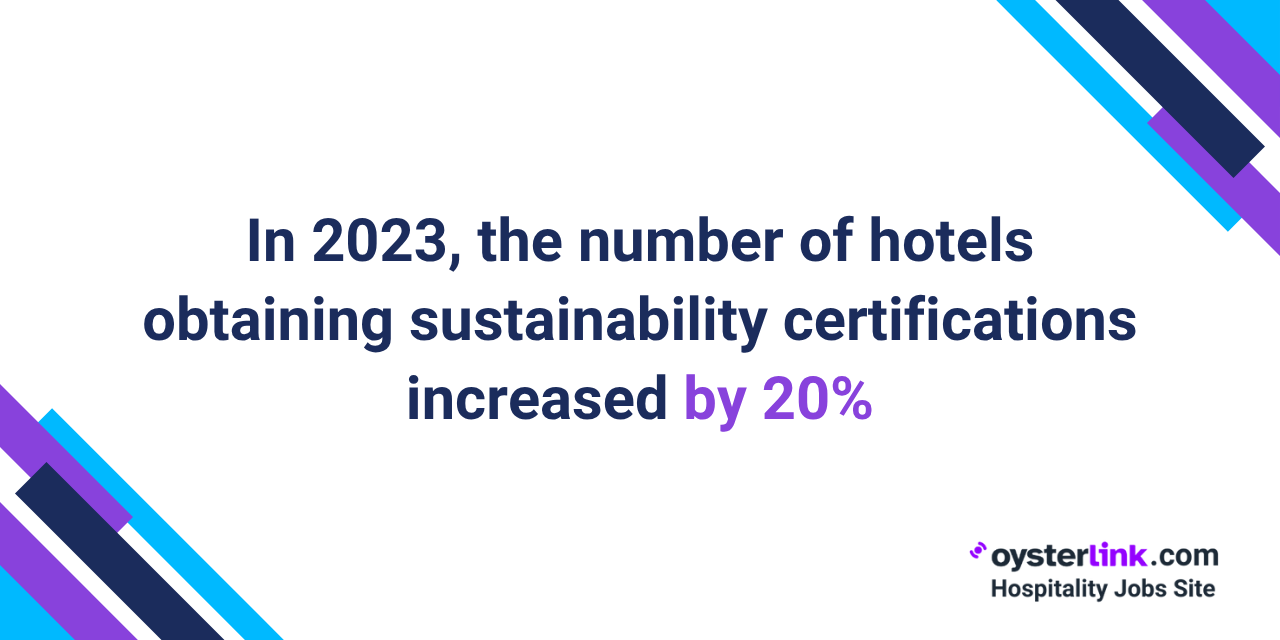
Hospitality Sustainability Statistics Methodology
The hotel and hospitality industry sustainability statistics and information presented in this report are derived from a variety of sources: EHL Insights, Booking.com, Just Capital, The Global Sustainable Tourism Report, Cambridge Institute for Sustainability Leadership and U.S. Green Building Council, Cesar Ritz Colleges Switzerland and Open Access News.
These sources have been combined to get a broad view of where the hotel and hospitality industry is in 2025, and may not reflect all businesses or regions.
About OysterLink
OysterLink is a dedicated platform designed to connect hospitality professionals with potential employers, streamlining the process of finding top jobs or filling key roles efficiently.
For job seekers, it offers salary insights, career guidance and access to top job listings. For employers, it provides tools to craft compelling job ads, identify suitable candidates and access valuable business resources.
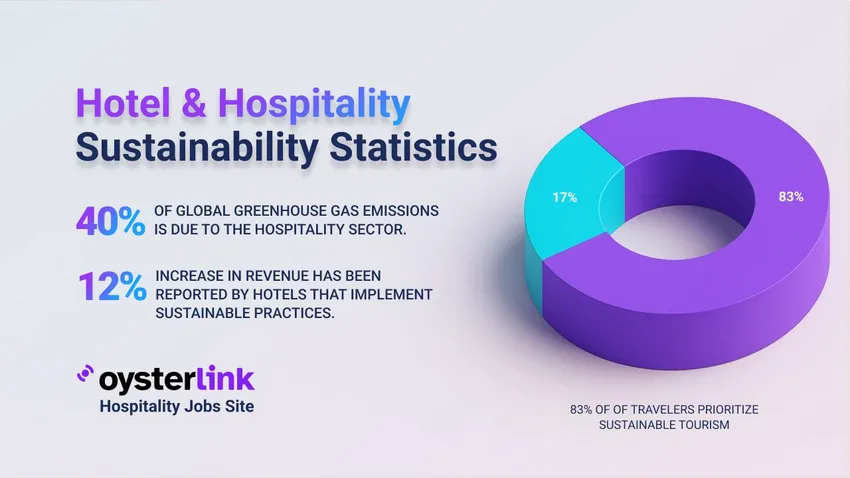







Loading comments...